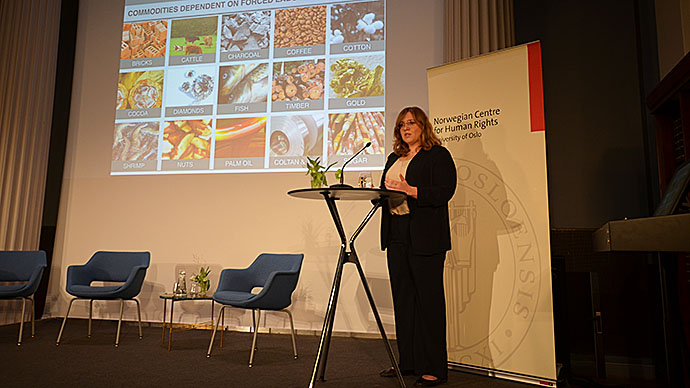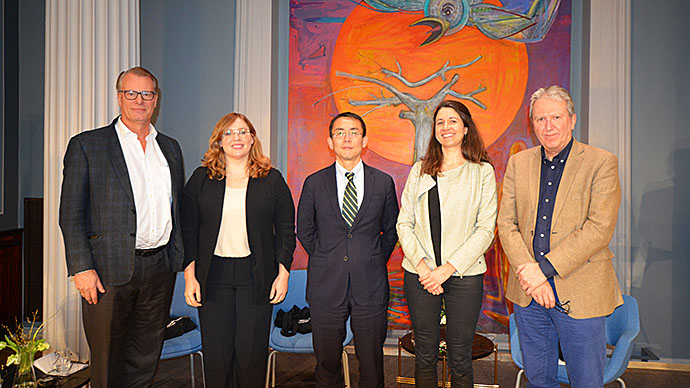Around 28 million people worldwide are currently in situations of forced labor. Where did labor governance go wrong, and how do we protect the human rights of workers in supply chains? Domus Bibliotheca was filled to the brim with an engaged audience who took part in a lively discussion.
Professor Bård Anders Andreassen, Director of the NCHR, emphasized in his introduction that slavery was the first human rights issue to arouse international concern. Yet, the sad fact is that its practice continues today and remains a grave problem. He illustrated it with the ongoing debates about working conditions for migrant workers who constructed the arenas for the FIFA World Cup in Qatar, in many cases amounting to forced labour conditions. He, however, noted that most situations go on without attention in either local or global media.

Keynote Speech
Professor Genevieve LeBaron, Director of the School of Public Policy at Simon Fraser University, Canada, addressed in her keynote speech the root causes of forced labour within supply chains, such as the tea industry's supply chain, and questioned the effectiveness of measures adopted by governments and businesses alike to tackle the issue. She noted the discrepancy between a flurry of labor governance initiatives, such as transparency legislation on corporate behaviour and social impact certifications, and results on the ground, which tends to show very little improvement in supply chain workers' working and living conditions.
Panel debate
Tomoya Obokata, UN Special Rapporteur on Contemporary Forms of Slavery, and Johan H. Andresen, Chair of the Council on Ethics for the Government Pension Fund Global, were also part of the panel debate, which was moderated by Kristel M. Tonstad, Policy Director for the Norwegian National Contact Point for Responsible Business. The debate provided further insights on the issue of forced labour from a human rights and business point of view. The panelists discussed possible venues for change and improvement, such as civil society engagement and corporate "naming and shaming," and the potential of the recently adopted Norwegian Transparency Act, among other new legislations.

The debate offered an opportunity to raise awareness and understanding of the complexity of the supply chain business model. For the NCHR, it has been important to host this Oslo Peace Days event to help shed light on the issue and to discuss recent and ongoing attempts to reduce the struggle against forced labour, slavery, and indecent working conditions through law, civic action, and policy measures.
